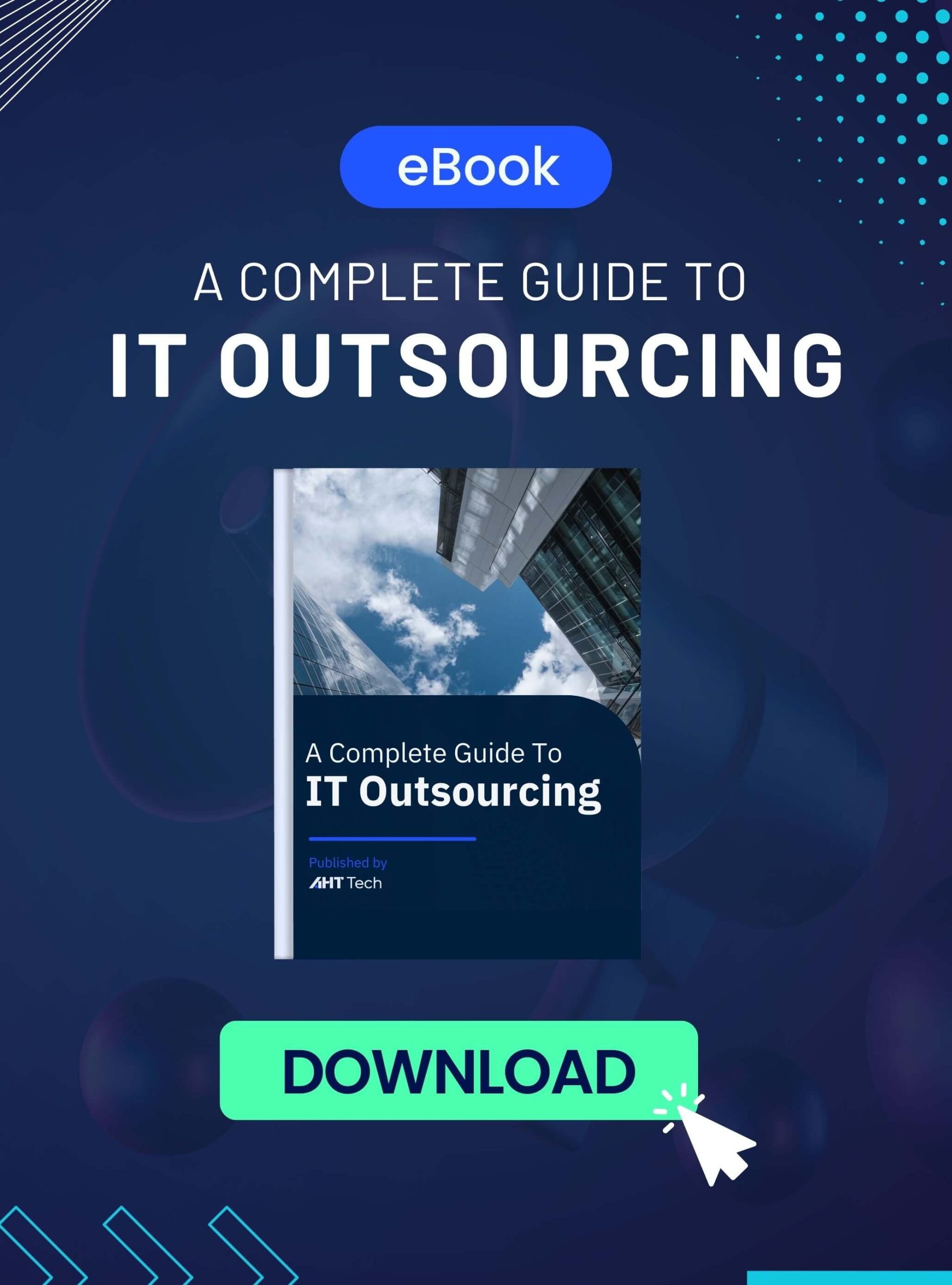TABLE OF CONTENT
What Is an Open-Source CMS?
Benefits of Open-Source CMS Development
How Open-Source CMS Implements
Best Open-Source CMS System
Conclusion
What Is an Open-Source CMS?

- Design templates and themes to create the structure and appearance of the web application.
- Provide extra functionalities, features, and plugins to integrate with the website
- User-friendly interface allows both non-technical users and developers to easily utilize as well as implement.
- Create and manage user accounts to control access more effectively
- Enable websites to offer content in multiple languages with multi-lingual support.
- Deliver SEO tools like Yoast SEO to optimize SEO as well as enhance website visibility and generate rankings in search engine results.
With open-source CMS development, users have the freedom to customize their websites while also leveraging the advancements made by fellow community members. Developers can improve upon existing software as the source code is accessible at all times. Nonetheless, continuous user contributions may lead to the deprecation or alteration of previous features, potentially causing issues for users who may need to update their code to maintain access to these functionalities.
Benefits of Open-Source CMS Development
In the present era of technological advancements, a plethora of open-source CMS development options are available for selection. These CMSs heavily depend on their extensive community of developers, users, and volunteers to ensure the continuous enhancement and maintenance of the project. Let us now explore the advantages they offer collectively, enabling you to make an informed decision regarding the most suitable CMS for your needs.
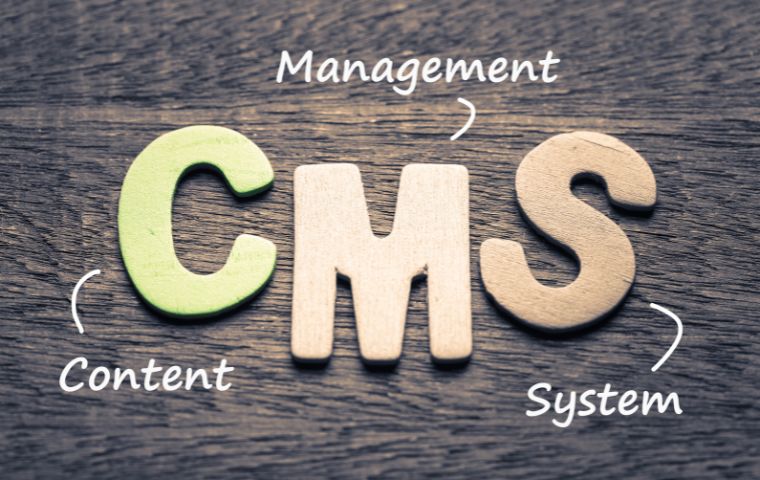
Frequent updates
Since the open-source CMS is maintained by an active community of developers, you can always receive regular updates for free. It follows that the CMS will not stop because it will continuously build upon it. Continuous updates generally improve open-source code to match the most recent best development practices. Therefore, any problems errors, or security holes can be fixed immediately.
Customizability and flexibility
While custom CMS offers extensive control, open-source CMS can deliver major benefits if the requirements are right. With the accessibility of source code, there’s no limit to what you can modify and create your own features for your website if you have the technical skills. In case you don’t have in-house developers, you can hire a CMS developer to implement complex tasks. You can choose from dozens of thousands of plugins, features, extensions, modules, or themes to enhance the functionality and look of your website. Additionally, your open-source CMS vendor will assist you in customizing or modifying features if you request.
Affordability
One of the benefits that cannot be ignored when starting open-source CMS development. Unlike other CMS like WordPress VIP, Adobe Experience Manager, Sitecore, or Drupal Cloud, it is completely free to download and use. Their maintenance and development are supported by community contributions and volunteer development. Additional customizations do not come at additional costs as with a proprietary CMS. So once you have access to the software, you can add or modify any functionality you need without having to pay the vendor repeatedly.
How Open-Source CMS Implements
Many businesses choose open-source CMS development because of its advantages. Like other CMS platforms, open-source CMS also creates, manages, and organizes digital content. However, open-source CMS with accessible source code allows developers easy access to many tasks like customization. Here’s a basic explanation of how open-source CMS works:
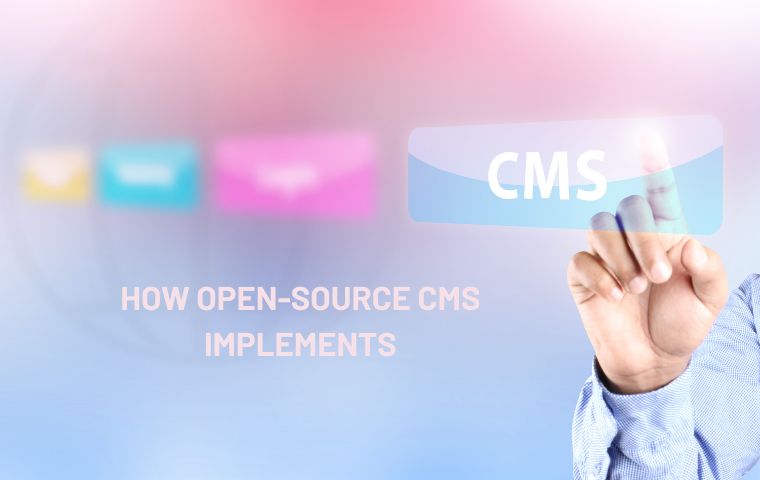
- Installation/setup: Users or web developers must start by installing the open-source software and setting up the CMS instance on their web server. This can usually be done quite simply through an online installer or by uploading files to the server.
- Configuration: Once installed, users configure the CMS settings according to their needs. This can include selecting themes, and plugins, establishing database connections, and configuring user access.
- Content creation: Users can then start creating content for their website or application such as text, images, videos, and other types of media using the CMS’s built-in editor or other tools.
- Content management: The content is managed and decided entirely by users on the basis of building a website that suits their needs and the time they want. Organize, approve or schedule the publication of digital content efficiently and conveniently through the tools and features provided by that CMS.
- Maintenance and updates: Open source CMS development platforms are maintained and continuously updated with new features by a community of developers ensuring that their websites are always secure and up to date and that users are always using the latest versions.
Best Open-Source CMS System
Wordpress
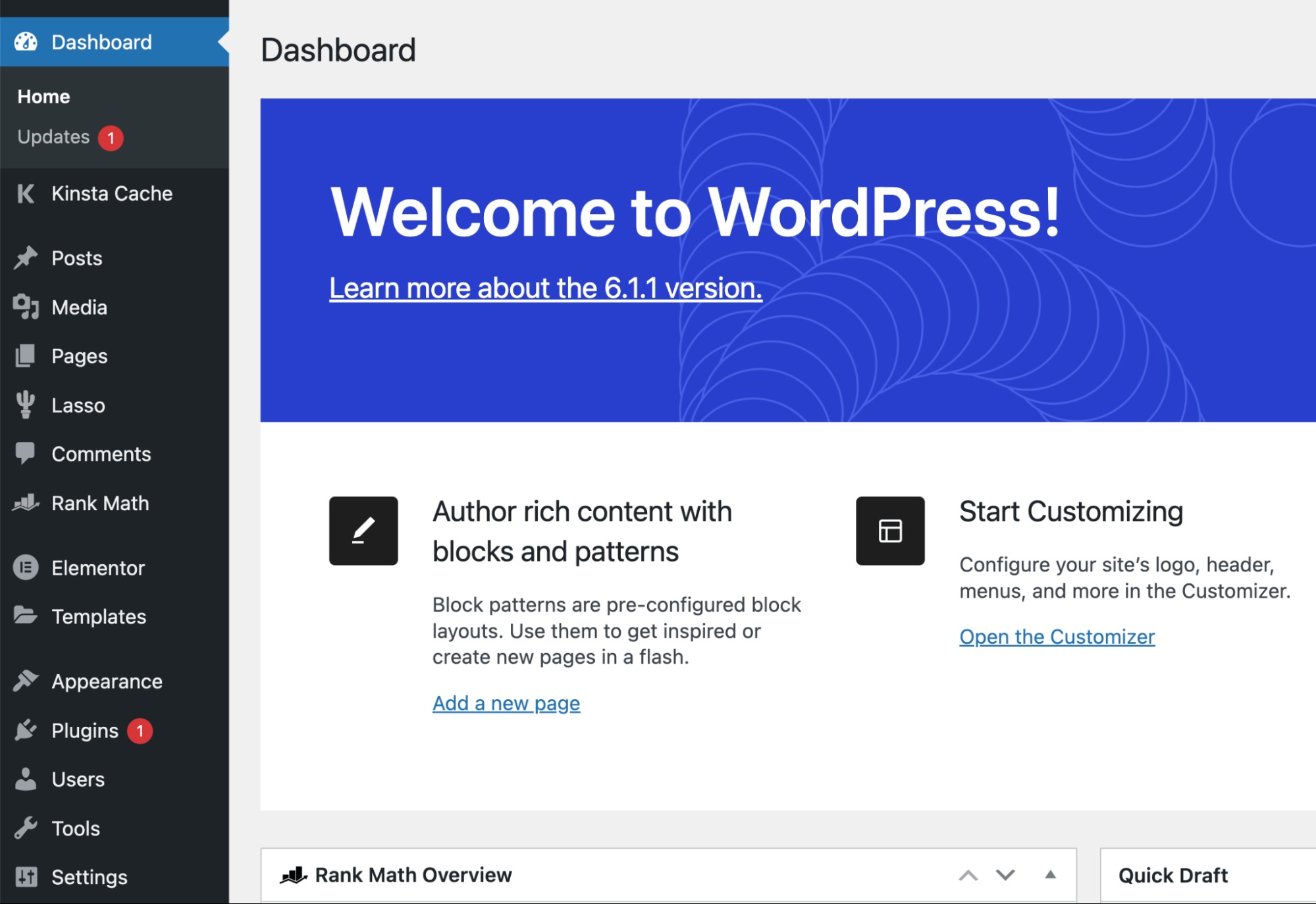
WordPress is a popular open-source CMS development for creating blogs, websites, and other content chosen by millions of websites worldwide—from creators and small businesses to enterprises. With designs, builds and extensions available, users or businesses can maximize time, customize every detail, edit, reorganize content, and add what they need with a rich Plugin library.
Webflow

WebFlow is considered a platform designed for growth – a tool that helps you scale your website with your business. Building with the power of code — without writing anything, Webflow generates semantically clear code, ready to publish or hand off to developers. With that comes creative power that goes beyond the box, optimizes your SEO, and improves discoverability with fine-tuned controls, high-performance storage, and flexible content management tools. Add to that creating a fully localized experience for website visitors around the world.
Drupal
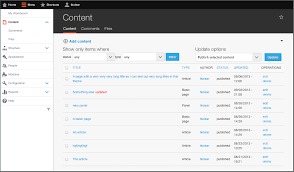
Drupal is a professional open-source CMS development to build their websites right inside their browsers. It offers full hosting and all the integrated tools you need to create your own website. This is a great option for users with little to no experience designing or coding websites but still delivers professional results. SaaS platforms and agencies use the Drupal website builder in part because of its flexibility, ease of use, and professionalism.
Conclusion
Open source CMS development plays an extremely important role in managing content websites with more advantages. It helps a lot in saving investment costs in website management. And users have the freedom to modify and enhance the source code according to their needs, while benefiting from regular updates and contributions from the community. If you want to implement CMS projects, you can hire an open-source CMS development provider. AHT Tech is a global IT development outsourcing with years of experience. We have a pool of talented developers, specializing in various advanced technologies and platforms. Tell us about what you need for your open-source CMS development project!



